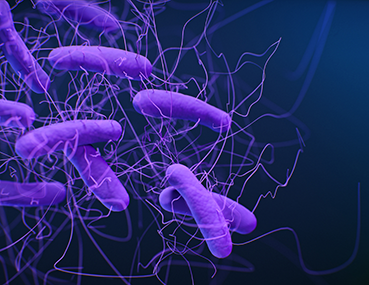Clostridioides difficile Infection

Clostridioides difficile [klos–TRID–e–OY-dees dif–uh–SEEL] (C. diff ) is a germ (bacteria) that causes life-threatening diarrhea. It is usually a side-effect of taking antibiotics.
These infections mostly occur in:
- People 65 and older who take antibiotics and receive medical care
- People staying in hospitals and nursing homes for a long period of time
- People with weakened immune systems or previous infection with C. diff
Symptoms might start within a few days or several weeks after you begin taking antibiotics.
Symptoms include:
- diarrhea: loose, watery stools (poop) for several days
- fever
- stomach tenderness
- loss of appetite
- nausea
C. diff can easily spread from person to person.
Also Known As…
Clostridioides difficile is also called
- C. difficile
- C. diff
- CDI (Clostridioides difficile infection)
- CDAD (Clostridioides difficile-associated disease)
It used to be called…
- Clostridium difficile
More Information
See CDC’s report
Antibiotic Resistance Threats in the United States, 2019
How common are these infections?
C. diff is a major health threat. In 2017, there were an estimated 223,900 cases in hospitalized patients and 12,800 deaths in the United States [Source: 2019 AR Threats Report].